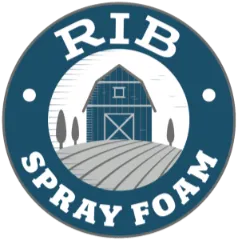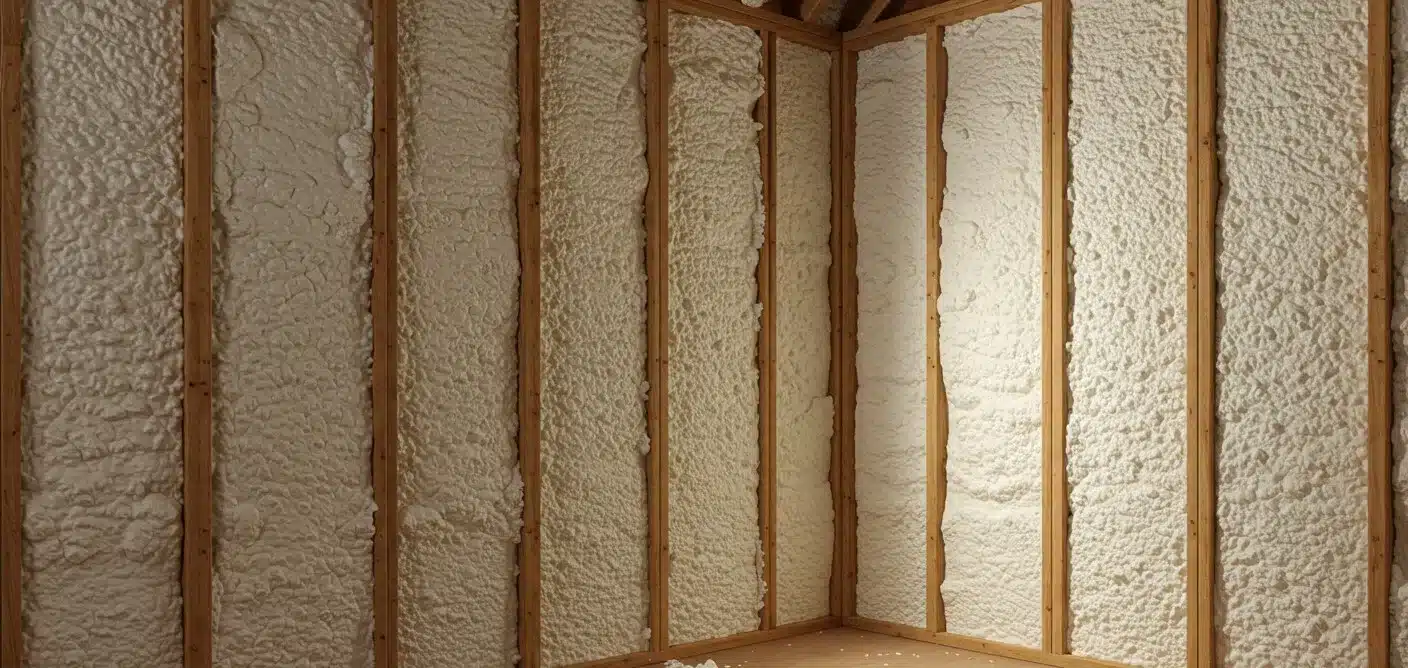Spray foam insulation is a reliable choice for homeowners looking to improve energy efficiency, reduce utility costs, and enhance indoor comfort. Once installed, it forms an airtight seal that minimizes heat loss and air infiltration. While it requires minimal maintenance, periodic checks and minor upkeep help extend its effectiveness over time. This guide covers essential maintenance steps to keep your spray foam insulation performing at its best.
Understanding Spray Foam Insulation
Spray foam insulation comes in two main types: open-cell and closed-cell foam. Each offers different benefits based on application needs. Open-cell foam is softer and more flexible, allowing for soundproofing and minor expansion/contraction. Closed-cell foam is denser, providing superior insulation and moisture resistance. Proper maintenance ensures both types retain their insulating properties.
Common Issues That Affect Spray Foam Insulation Efficiency
Several factors can impact the efficiency of spray foam insulation over time. Regular monitoring helps identify potential issues early:
- Moisture Exposure – Prolonged water exposure can compromise insulation integrity.
- Pest Intrusion – Rodents or insects may damage the foam by burrowing or nesting.
- Structural Shifts – House settling or movement may create gaps in insulation coverage.
- Chemical Sensitivity – Harsh chemicals can degrade the foam over time.
- UV Damage – Direct sunlight exposure on exposed foam can lead to deterioration.
Maintenance Steps for Long-Term Efficiency
1. Conduct Routine Inspections
Perform a visual inspection at least once a year to check for damage, moisture buildup, or degradation. Focus on:
- Attic spaces and crawl areas where foam is exposed.
- Basement and foundation walls with spray foam application.
- Areas around HVAC ducts, wiring, and plumbing.
2. Address Moisture Issues Promptly
Water intrusion is one of the biggest threats to spray foam insulation. Keep an eye on signs of moisture problems such as mold growth, dampness, or discoloration. If you notice leaks, fix them immediately to prevent long-term damage.
3. Seal Any Small Gaps or Damage
If minor gaps appear due to house settling, use compatible spray foam sealant to fill in the affected areas. Avoid using caulks or materials that may not adhere properly to the existing foam.
4. Protect Insulation from Pests
Rodents and insects can create tunnels or nests within insulation. Keep your home sealed against pests by:
- Closing gaps in exterior walls and foundation.
- Using mesh screens on vents and openings.
- Placing pest deterrents near vulnerable areas.
5. Avoid Harsh Cleaning Chemicals
Spray foam insulation should not come into contact with solvents, oils, or harsh cleaning agents. When cleaning near insulated areas, use mild solutions and avoid direct exposure to chemicals.
6. Shield Foam from UV Exposure
If spray foam is exposed to sunlight, apply a protective coating or paint to prevent UV degradation. This is particularly important for exterior applications or garage insulation.
When to Consult a Professional
While minor maintenance can be handled independently, some situations require expert attention:
- Major Foam Deterioration – Large-scale damage or crumbling sections indicate insulation failure.
- Persistent Moisture Problems – If leaks continue despite repairs, a professional assessment may be necessary.
- Severe Pest Infestation – If rodents or insects have extensively damaged the insulation, removal and reinstallation may be required.
Professional Assessment and Repairs
Rib Spray Foam Company offers comprehensive inspection and repair services for residential spray foam insulation. Our team can identify underlying problems and provide effective solutions to restore insulation efficiency. Call (970) 518-2883 or email [email protected] for expert assistance.
Energy Efficiency Benefits of Well-Maintained Spray Foam
Keeping spray foam insulation in top condition offers long-term advantages:
- Lower Energy Bills – Reduces heating and cooling costs by maintaining thermal efficiency.
- Enhanced Comfort – Eliminates drafts and maintains consistent indoor temperatures.
- Improved Indoor Air Quality – Reduces dust and allergens by sealing air leaks.
- Increased Property Value – Well-insulated homes are more attractive to buyers.
Final Thoughts
Regular maintenance ensures that residential spray foam insulation continues providing top-tier energy efficiency and indoor comfort. By conducting periodic inspections, addressing minor issues promptly, and seeking professional help when needed, homeowners can maximize the benefits of spray foam insulation for years to come. For expert guidance, contact Rib Spray Foam Company at (970) 518-2883 or email [email protected].
Frequently Asked Questions
How long does spray foam insulation last?
With proper installation and maintenance, spray foam insulation can last over 30 years without significant degradation.
Can I install more spray foam over existing insulation?
Yes, but it must be done correctly. The new layer should adhere properly without trapping moisture. A professional assessment ensures compatibility.
Does spray foam attract mold?
Spray foam itself is resistant to mold, but moisture buildup around it can lead to mold growth on nearby materials. Keeping areas dry prevents this issue.
What should I do if I notice a crack in the insulation?
Small cracks can be sealed with additional spray foam or insulation sealant. If the damage is widespread, professional repair may be required.
Is spray foam insulation safe for my home?
Yes, once cured, spray foam is safe and does not release harmful chemicals. Proper ventilation during installation is essential to ensure safety.
How can I tell if my spray foam insulation is failing?
Signs include increased energy bills, drafts, moisture accumulation, or visible damage to the insulation.
Will spray foam insulation settle or shrink over time?
Properly installed closed-cell foam does not settle or shrink significantly. Open-cell foam may experience minor compression but remains effective.
Can pests chew through spray foam insulation?
While spray foam is not a food source, determined rodents can gnaw through it. Sealing entry points helps prevent this issue.
Is spray foam insulation flammable?
Spray foam has fire-resistant properties but can ignite under extreme conditions. Fire-rated coatings can provide additional protection.
Should I replace old spray foam insulation?
If it remains intact and effective, replacement is unnecessary. If damaged or deteriorated, professional evaluation can determine the best course of action.



